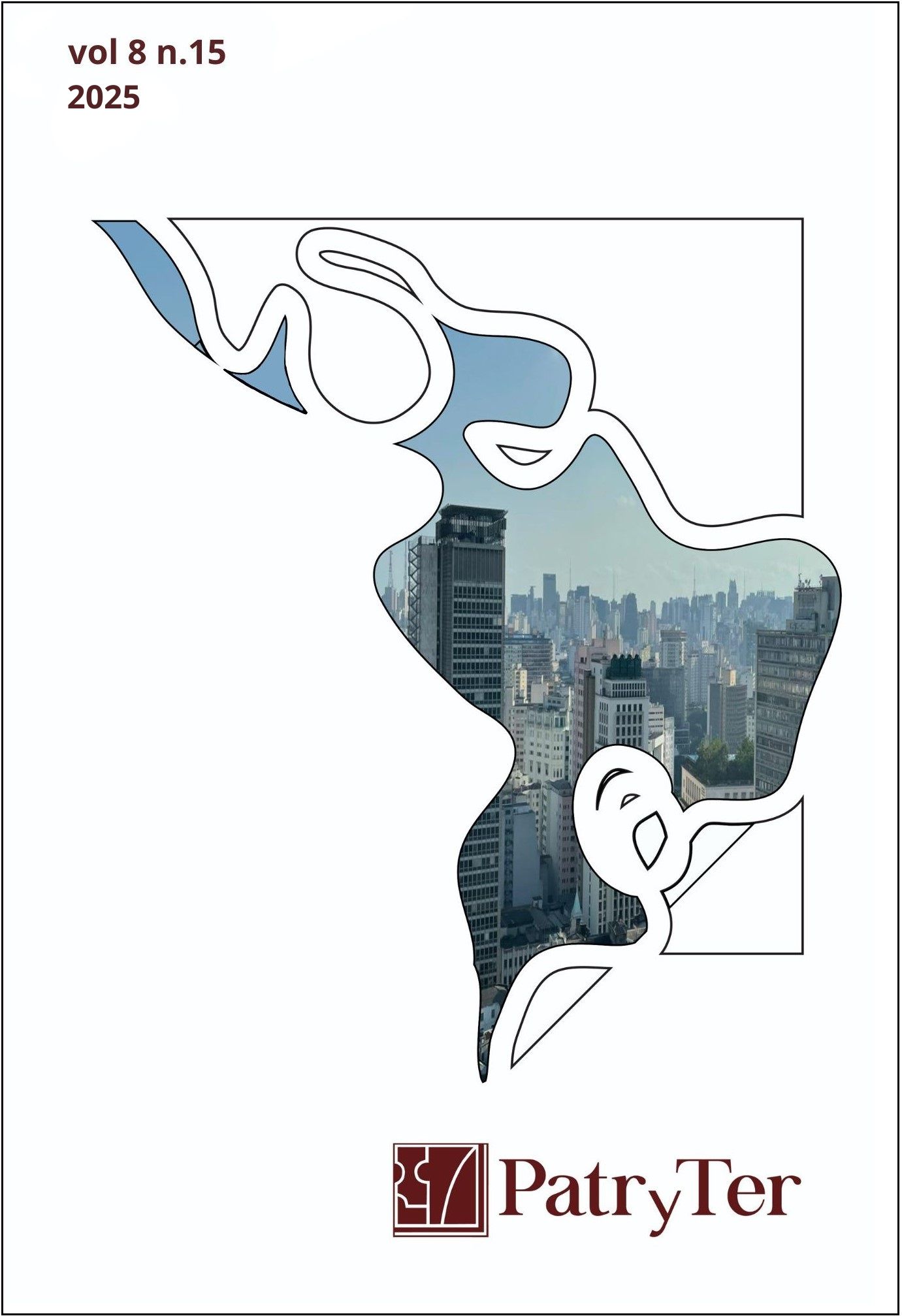Pluriversality of being and conception of space in quilombola world-sense
DOI:
https://doi.org/10.26512/patryter.v8i15.51344Keywords:
Ubuntu; pluriversary; ancestry; movement; quilombolaAbstract
One of the historical stages with more urban-architectural, political-economic and social changes in Mexico was the Porfirian era, which through the promotion of haciendas represented one of the essential strategies to consolidate the country as a nation in progress. Chiapas, one of the southern states of the Mexican Republic, specifically the region of Comitan, served as an important area at the state level in the development of its productive spaces, so the objective of this article is to make known the permanence of these haciendas in the territorial structure of Comitan, the significance of this era and its impact on the present time. The methodology used was qualitative based on documentary interpretation, reading of photographs and historical cartography. As a result, a historical reconstruction of the territorial transformation of Comitán through time is presented, valuing a heritage that has been forgotten.
Downloads
References
Brandão, C. (2020). O Trabalho Como Festa: algumas imagens e algumas palavras sobre o trabalho camponês acompanhado de canto e festa. Élisée Revista de Geografia da UEG, 9(2), 1-16. https://www.revista.ueg.br/index.php/elisee/article/view/10859
Carneiro, S. (2005). A construção do outro como não-ser como fundamento do ser (Tese de Doutorado em Educação). Universidade de São Paulo. São Paulo.
Brasil. (2003). Decreto 4.887. Brasília: Presidência da República, Casa Civil. https://www.planalto.gov.br/ccivil_03/decreto/2003/D4887.htm
Hooks, B. (2013). Ensinando a transgredir: a educação como prática da liberdade. São Paulo: WMF Martins Fontes.
Lynch, W. (1712). Carta de William Lynch. Curitiba: Centro Cultural Humaitá.
Mafeje, A. (1973). Agrarian Revolution and the question in Buganda. Gravenhage: Institute of Social Studies.
Mafeje, A. (2018). The Agrarian Question, Accces to Land, and Peasant Responses in Sub-Saharan Africa. United Nations Research Institute for Social Devolopment.
Moura, C. (1986). Os quilombos e a rebelião negra. São Paulo: Brasiliense.
Nascimento, A. (1980). Quilombismo: documentos de uma militância pan-africanista. Petrópolis: Vozes.
Neres, M. (2016). Quilombo Mesquita: história, cultura e resistência. Cidade Ocidental: Conquista.
Ramose, M. (1992). Universalism today: contributions at the IInd International Symposium for Universalism, Berlin, August 22nd to 26th, 1990. Berlin: Dieter Claessens e Rainer Mackensen.
Ramose, M. (2005). African fhilosophy through ubuntu. Harare, Zimbabwe: Mond Books Publishers.
Ramose, A. (2011). Sobre a Legitimidade e o Estudo da Filosofia Africana. Ensaios Filosóficos, IV, 9-25. https://www.ensaiosfilosoficos.com.br/Artigos/Artigo4/RAMOSE_MB.pdf
Ribeiro, D. (2017). O que é lugar de fala?. Belo horizonte: Letramento.
Santos, A. (2015) Colonização, Quilombos: modos e significados. Brasília: OPB, UnB, INCT, Cnpq.
Seligmann-Silva, M. (2008). Narrar o trauma: a questão dos testemunhos de catástrofes históricas. Scielo, 20(1), 65-82. https://pepsic.bvsalud.org/pdf/pc/v20n1/05.pdf
Downloads
Published
How to Cite
Issue
Section
License
Copyright (c) 2024 PatryTer

This work is licensed under a Creative Commons Attribution-NonCommercial-NoDerivatives 4.0 International License.
Please be advised that Revista Patryter is licensed under a Creative Commons Attribution-NonCommercial-NoDerivatives 4.0 International License (CC BY-NC-ND 4.0) https://creativecommons.org/licenses/by-nc-nd/4.0/deed.en
Authors who publish in the PatryTer Magazine agree to the following terms:
- Authors retain the copyright and grant the journal the right of first publication, the work being simultaneously licensed under the Creative Commons Attribution-NonCommercial-NoDerivatives 4.0 International License (CC BY-NC-ND 4.0) which allows the sharing of the work with recognition of the authorship of the work and initial publication in this journal.
- The contribution is original and unpublished and is not being evaluated for publication by another journal. When submitting the article, authors should attach as a supplementary document a Letter addressed to the PatryTer's Editor, indicating the academic merits of the submitted work (relevance, originality and origin of the article, that is, from what type of research]. This letter must be signed by all authors.
- The authors authorize PatryTer Journal to publish the article in public and private databases, in Brazil and abroad.
- Authors declare that they are fully responsible for the entire contents of the contribution that they submit to the Editorial Board of PatryTer Magazine.
- Authors declare that there is no conflict of interest that could interfere in the impartiality of the scientific papers submitted to the PatryTer Magazine Editorial Board.
- Authors are authorized to take additional contracts separately, for non-exclusive distribution of the version of the work published in this journal (eg publish in institutional repository or as a book chapter), with acknowledgment of authorship and initial publication in this journal.
Authors are allowed and encouraged to publish and distribute their work online (eg in institutional repositories or on their personal page) at any point before or during the editorial process, as this can generate productive changes as well as increase the impact and the citation of the published work (See The Effect of Free Access).



